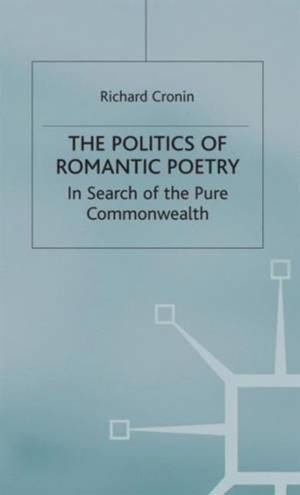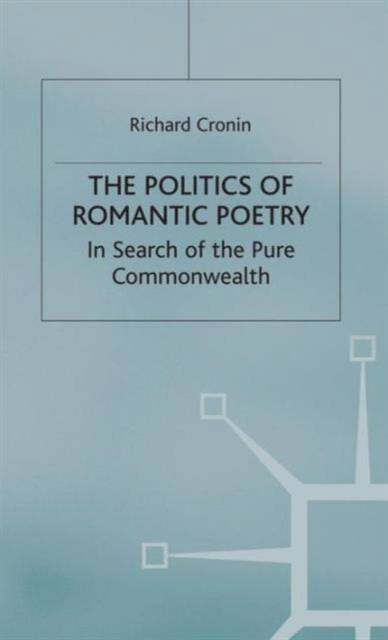
- Retrait gratuit dans votre magasin Club
- 7.000.000 titres dans notre catalogue
- Payer en toute sécurité
- Toujours un magasin près de chez vous
- Retrait gratuit dans votre magasin Club
- 7.000.0000 titres dans notre catalogue
- Payer en toute sécurité
- Toujours un magasin près de chez vous
153,95 €
+ 307 points
Format
Description
In recent years critics of Romantic poetry have divided into two groups that have little to say to one another. One group, as yet the most numerous, insists that to study a poem is to investigate the historical circumstances out of which it was produced; the other retorts that poetry offers pleasures fully available only to readers whose attention is focused on their language. This book attempts to reconcile the two groups by arguing that a poet's most effective political action is the forging of a new language, and that the political import of a poem is a function of its style.
Spécifications
Parties prenantes
- Auteur(s) :
- Editeur:
Contenu
- Nombre de pages :
- 225
- Langue:
- Anglais
- Collection :
Caractéristiques
- EAN:
- 9780333761069
- Date de parution :
- 13-01-00
- Format:
- Livre relié
- Format numérique:
- Genaaid
- Dimensions :
- 140 mm x 216 mm
- Poids :
- 417 g

Les avis
Nous publions uniquement les avis qui respectent les conditions requises. Consultez nos conditions pour les avis.






